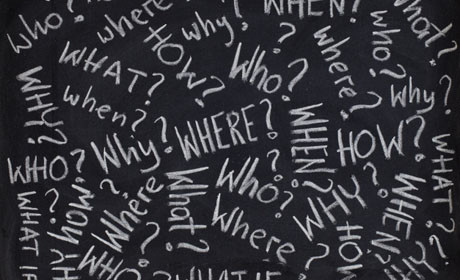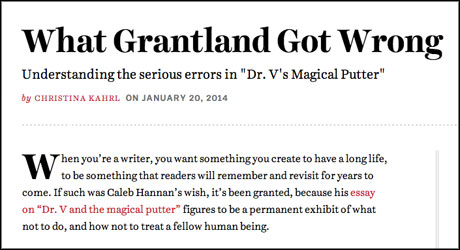
Online-only news sites such as Quartz and ProPublica are heralding a "more streamlined set of editorial standards that fit the internet era" according to a report published today by the Reuters Institute for the Study of Journalism.
The report Accuracy, independence and impartiality: How legacy media and digital natives approach standards in the digital age looks at how digitally native sites are pioneering a "hybrid form" of journalism which emphasises transparency, plurality and audience engagement.
"Sites like Quartz are really creating a new and bold set of editorial standards," explained Kellie Riordan, a journalist with the Australian Broadcasting Corporation, who wrote the report during her fellowship with the Reuters Institute.
"They're prioritising things like accuracy and making sure they give right of reply to sources, that they link to primary sources of information, but equally they're not caught up in strict impartiality because they just don't see it fitting the tone of the web, which is a little more conversational sometimes more opinionated and more social."
The report focuses heavily on journalistic principles at three digitally-native outlets – Quartz, BuzzFeed and Vice News – and three legacy outlets – the Guardian, The New York Times and the BBC.
In the ever-changing digital space, Riordan believes it is especially important for legacy news organisations to check if their editorial principles are "still relevant in the 21st century".
And although she acknowledges that it would be "very difficult" to have one set of regulations to fit news media across the globe, she believes there should be a baseline set of standards "which anyone involved in providing news content can pick up", such as the DIY ethics code currently being crowdsourced by the Online News Association.
Below are some of the recommendations from the report, which is available in full here.
Link to original sources
Although Riordan admitted that linking back to primary sources or information sounds "really obvious" she said a lot of news outlets are still either not doing it, or not doing it well.
"They'll make some statement and not back it up with the facts, or not give audiences the chance to have a look at where that information came from," she explained.
Hyperlinking, said, Riordan, is a way for journalists to show accuracy and transparency in their work.
She cited ProPublica as a good example of a site which "does a fantastic job of pulling together incredible rich information but making sure it's accessible to the audience".
Give corrections context
Whereas corrections and apologies in print media have traditionally been squeezed into one paragraph pushed towards the back of the newspaper, said Riordan, unlimited online space offered news outlets the opportunity to demonstrate accountability with "a much more fullsome, contextualised correction".
In the report, Riordan highlights a number of posts made by the sports site Grantland after it published a feature, Dr V's Magical Putter, which received heavy criticism for its handling of transgender issues.
Grantland also came under fire for its decision to publish the story after "Dr V", real name Essay Anne Vanderbilt, took her own life before it was published, a tragedy that may have been linked to the reporter inadvertently outing Vanderbilt to an investor.
"Any other media organisation might have just ripped the story down or maybe put a begrudging apology," Riordan said, "but Grantland issued this fantastic apology that explained the entire process and really showed people what happens in a newsroom to make these decisions, and how they're not easy decisions."
As well as publishing a letter from its editor, the site also commissioned a piece titled What Grantland got wrong from Christina Kahrl of GLAAD, an organisation which supports the LBGT community,
By producing a detailed apology which showed integrity, Grantland was ultimately able to regain its credibility, explained Riordan.

Screengrab from Grantland.com
"I thought that was really brave journalism," she said.
"They admitted their mistakes, they linked to other information around the issue and I thought that was a really smart way to be transparent in the digital age."
Demonstrate plurality
By directing readers to other reporting, news outlets benefit their readers by allowing them to gain a broader knowledge and view different perspectives around a particular issue.
For example, a recent BBC report on Syria also links to the Syrian News Agency Sana, a Facebook page dedicated to the 2011 Syrian Revolution and the website for the Human Rights Observatory.
This "multi-pronged" approach can also help to experience different perspectives in debates which are "rarely black and white," Riordan said.
"So someone can do a story on the radio, and link to an opinion piece online, and they might also have a data graph, and then they might commission a piece from another player in the story and build up all of the voices that are part of that story.
"That gives audiences greater access to more opinions."
Be transparent
New outlets should be open about where they get information and who is writing their articles in the interest of journalistic integrity, said Riordan.
One example is ProPublica's Dollars for Docs, which allows users to search a database to see if their doctor has received payments from drug companies. The raw data is also freely available to download.
Riordan also points to what she calls "the Glenn Greenwald approach".
Greenwald, widely known for his reporting on the NSA scandal, is now writing for The Intercept, the investigative site launched earlier this year by First Look Media.
"He is sometimes described as an advocate journalist, or a blogger, rather than a journalist in the pure sense of the word, and I think there's room for those sorts of people and their approach to journalism as long as they're transparent about where they're coming from," she said.
However, Riordan disagrees with the view that transparency is the new objectivity.
"I think some people will use transparency to show journalistic integrity, and others will use impartiality, and I think both of those approaches towards journalism are valid and both can co-exist in the digital world."
Free daily newsletter
If you like our news and feature articles, you can sign up to receive our free daily (Mon-Fri) email newsletter (mobile friendly).
Related articles
- Reuters Institute trends and predictions 2023: revenue, news avoidance and tech turbulence
- Quartz pivots from paywall to registration wall, making the bulk of online content free-to-read
- Quartz launches new Africa membership product to monetise investors' interest
- Three innovative ways to create audience revenue
- Quartz bets on newsletters to drive reader revenue









